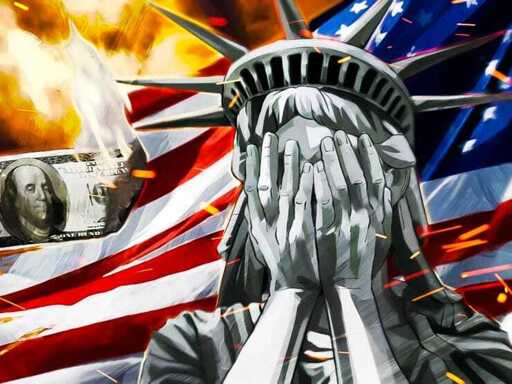End of History ideologues btfo
a weakening of the Westphalian system based on sovereign states
Setting aside the idiocy of the “wesphalian” nonsense, this is almost certainly code from the Trump admin for dismantling or ejecting from global institutions such as the WHO and not a rejection of regime change efforts (which Americans will never give up on unless they become weak).
we assumed this responsibility of sort of becoming the global government in many cases, trying to solve every problem
Yeah this is conservative speak for America to stop trying to do anything good on the global stage at all.
The modern world order since the Peace of Westphalia in 1648 has been based on the principle of multipolarity and a balance of power to constrain expansionist and hegemonic ambitions of states.
I have never seen such bullshit.
Either way, the rest of this article is not so bad, and certainly has some interesting bits. But the beginning seems to fall into the trap of taking the words of conservatives at face value, which is always a grave mistake imo.
Damn, for Rubio to be admitting this is very interesting. I’ve been joking about comrade Trump unintentionally dismantling their globalist hegemony for so long, now Rubio is suggesting that was always the plan? What a week
globalist
Yeah, maybe don’t use that word, it’s tainted by its fascist associations.
I changed it to globalist from anti imperialist to be more in line with their rhetoric, since their goals aren’t anti imperialism
deleted by creator
There are only a handful of hits for “globalist” or “globalism” on that page, as opposed to dozens for “globalization”. Maybe you should’ve linked this page instead https://en.wikipedia.org/wiki/Globalism#Usage_in_right-wing_politics
truly
I just started reading Geopolitical Economy by Radhika Desai, and even just reading the intro it’s apparent she could see the writing in the wall. This was written in 2013. She could see that the sustainability of the global US project was coming to an end. I’m definitely going to follow through with this book as it seems incredibly relevant.
Any effort by a state to become dominant will therefore trigger great power conflicts as it compels other powers to collectively balance the aspiring hegemon.
This is very interesting, Desai describes this as Trotsky’s “Uneven and Combined Development” theory of Dialectical state relations:
states’ international interaction is seen in terms of the dialectic that the Bolsheviks termed uneven and combined development (UCD). On the one hand, dominant states seek to preserve existing uneven configurations of capitalist development which favour them, including through formal and informal imperialism. On the other, contender states (a term gratefully borrowed from Kees van der Pijl, 2006b) accelerate capitalist, and in some cases such as the USSR, communist, development to contest imperial projects of dominant states. Such hot-house development is called combined development because it combines or compresses many stages into shorter and more intense bursts. Despite the economic, geopolitical, military and ideological power marshalled by dominant states, so far the latter tendency has dominated in UCD – sometimes against great odds and with apparently interminable delays. This politico-economic dialectic, and not the market or capitalism conceived in exclusively economic terms, is responsible for productive capacity spreading ever more widely around the world. By the early twenty-first century it had created the multipolar world in which there were now too many economies that were too substantial for any one of them to even hope to dominate the rest.
And this once again highlights the predictive power of dialectical analysis.
Yeah this stuff is really good.
This politico-economic dialectic, and not the market or capitalism conceived in exclusively economic terms, is responsible for productive capacity spreading ever more widely around the world.

deleted by creator





